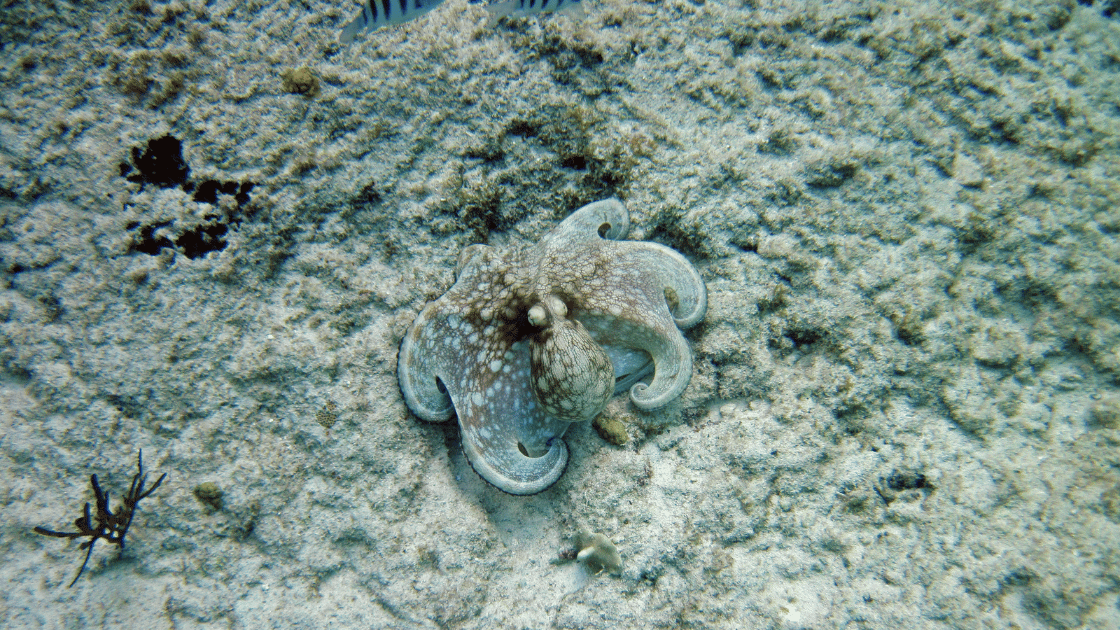Octopuses have thousands of cells in their skin called chromatophores that contain pigment allowing them to blend in with their surroundings. Their ink is made from melanin and is meant to confuse predators as the octopus swims away.


Octopuses have thousands of cells in their skin called chromatophores that contain pigment allowing them to blend in with their surroundings. Their ink is made from melanin and is meant to confuse predators as the octopus swims away.